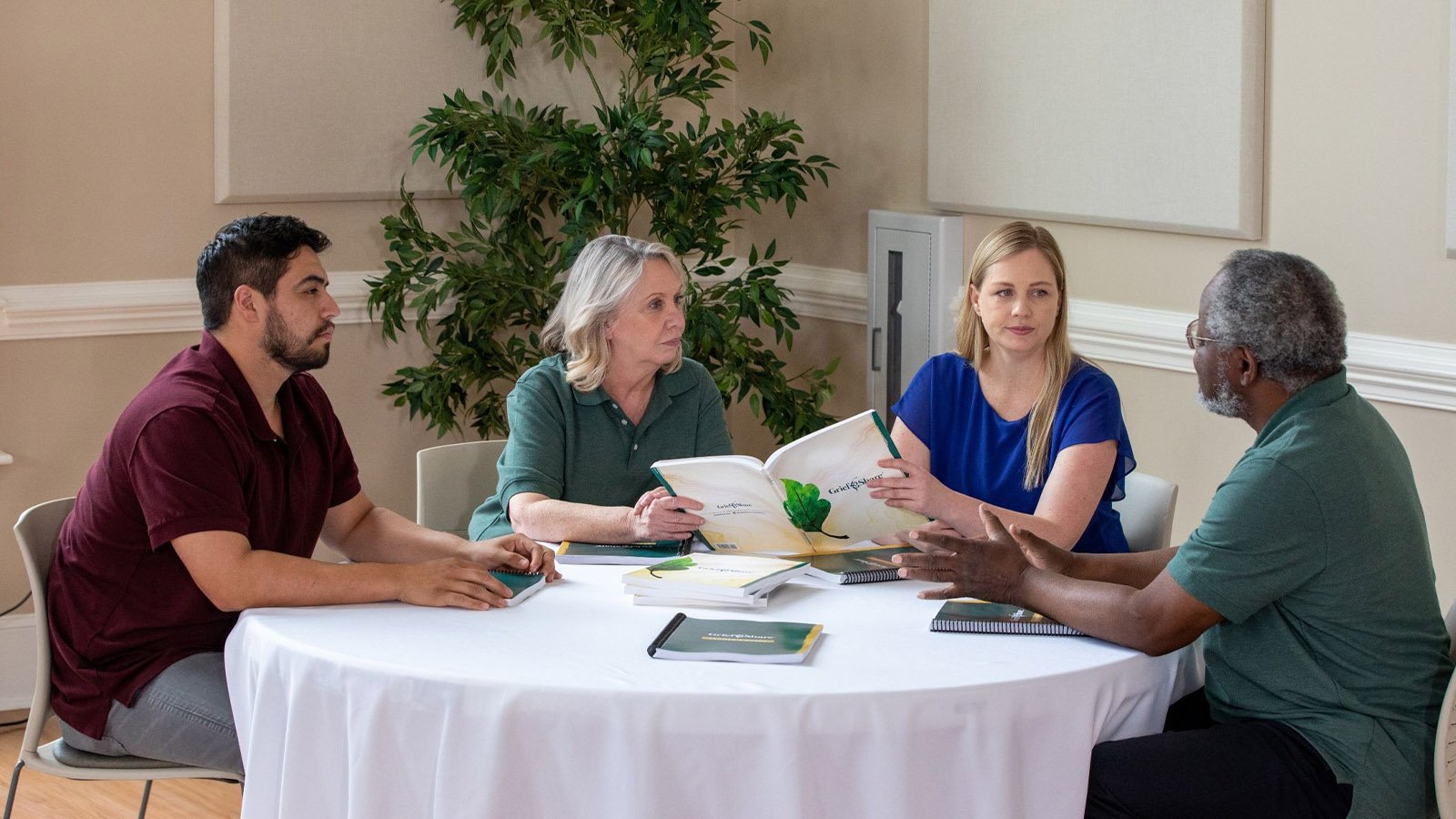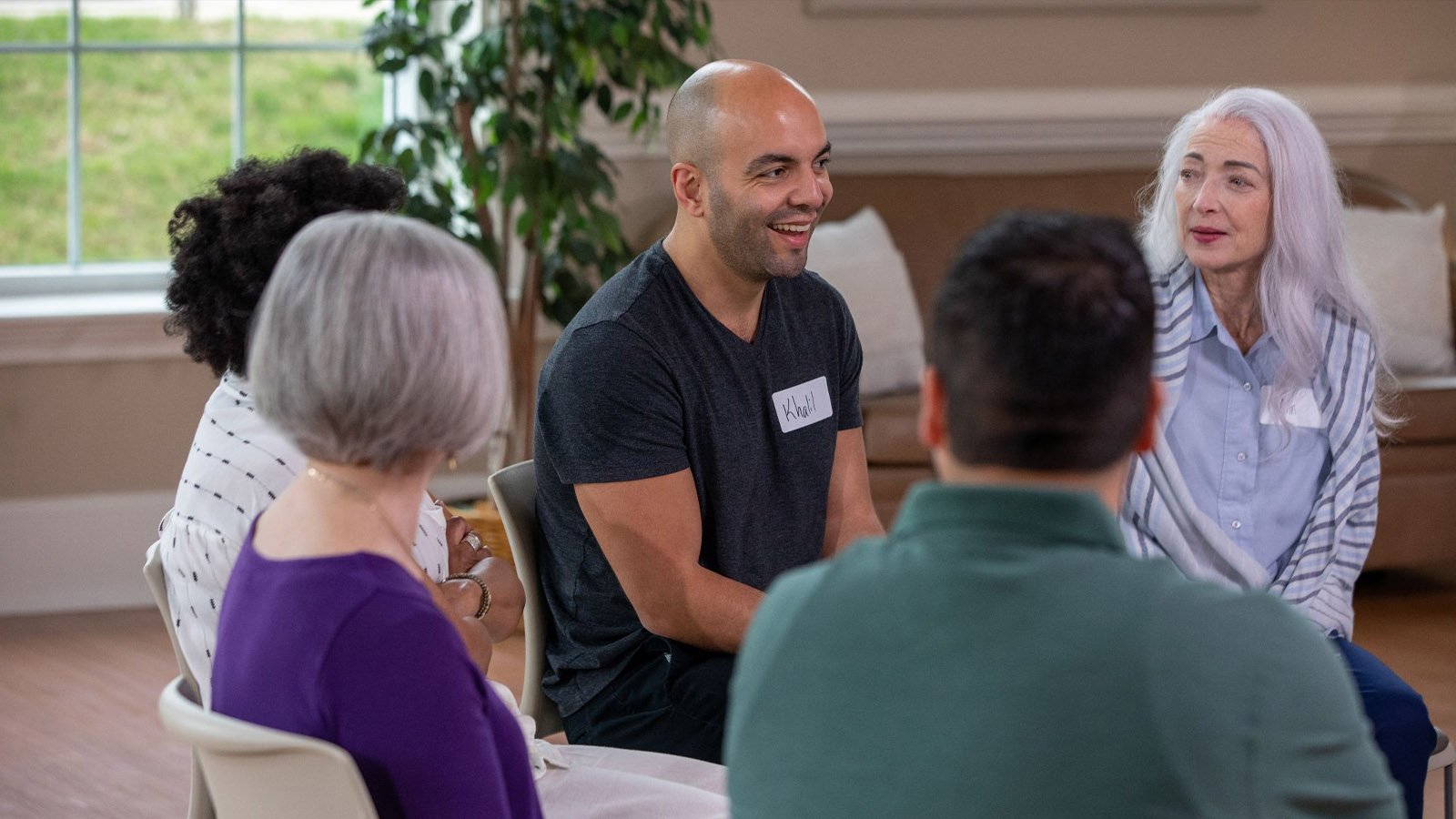Shy to Shepherd: How a Quiet Leader Became a Guiding Voice

She once froze in group discussions. Now she helps others speak.
“I was a painful introvert,” Amy Bondon says with a laugh. “In Bible study, I’d wait, and wait, and by the time I finally got up the nerve to speak, someone else had already said what I was thinking.”
Today, Amy co-leads a thriving online GriefShare group with participants from New Jersey, Florida, New York, and even Nairobi, Kenya. But her path to leadership didn’t begin with bold speeches or confident teaching.
It began with one quiet conversation at a time.
Growing into leadership, quietly
Amy joined GriefShare after her sister died. When someone invited her to help with group discussions, she hesitated. Talking in front of others wasn’t natural for her. But she took a small step—and that step led to another.
Eventually, Amy began co-leading groups. But she’s never stopped being introverted. And she doesn’t see that as a weakness.
“Introverts notice the one person leaning in, and draw them out,” she explains. “We’re usually more comfortable listening than speaking. That’s a gift in group leadership.”
And it is. Amy’s listening ear has become a lifeline for people in deep grief. She’s learned to read facial expressions on Zoom, sense when someone needs encouragement, and gently invite people to speak—without pressure.
“You’ve got to be okay with silence,” she says. “Let the room breathe. People will speak when they’re ready, and sometimes they just need to know you’re listening.”
“I’m not outgoing enough”
Many people hesitate to lead because they think they aren’t bold enough. But Amy’s story proves that God often works powerfully through quiet obedience.
“I still get nervous,” Amy admits. “I’ve learned that if God has called you to do something, He will equip you to do it.”
Her soft-spoken style is exactly what many grieving people need.
“Our group feels safe,” she says. “There’s no pressure to talk. We give them space, we notice when someone is holding back, and we invite them in.”
Over time, those small moments—one kind question, one shared tear—can open the door to transformation.
“We’ve seen the most reserved people open up,” Amy says. “Sometimes it just takes someone quiet like them to help them feel understood.”
You don’t have to be the expert
Amy reminds new leaders that they don’t need to have all the answers.
“You don’t have to be the expert,” she says. “You just have to show up, care, and point people to the materials.”
She encourages leaders to be prayerful and prepared, but also flexible. Amy co-leads with Lisa in New Jersey and Hugh in South Florida. Together, they support each other and their group.
“Don’t do it alone,” she advises. “Even if you’re the only ‘official’ facilitator, find someone who can come alongside you and help carry the weight.”
A quiet strength
Amy doesn’t try to impress. But her consistency, compassion, and courage speak volumes.
“I wasn’t supposed to live,” she shares, reflecting on her cancer journey. “But God gave me more time, and I’ve learned that when He asks me to do something, I need to say yes.”
That “yes” has led to comfort, healing, and spiritual growth for dozens of GriefShare participants.
And it all started with someone who once felt too shy to speak.
Be someone’s breakthrough
If you’ve ever felt too introverted or unsure to lead, Amy understands. But she also knows what happens when you say yes to God.
“I’m still learning,” she says. “But I’ve seen what happens when you show up, listen, and trust God to lead through you.”
Your quiet strength could be the breakthrough someone else needs.
Learn more about about facilitating a GriefShare group.


